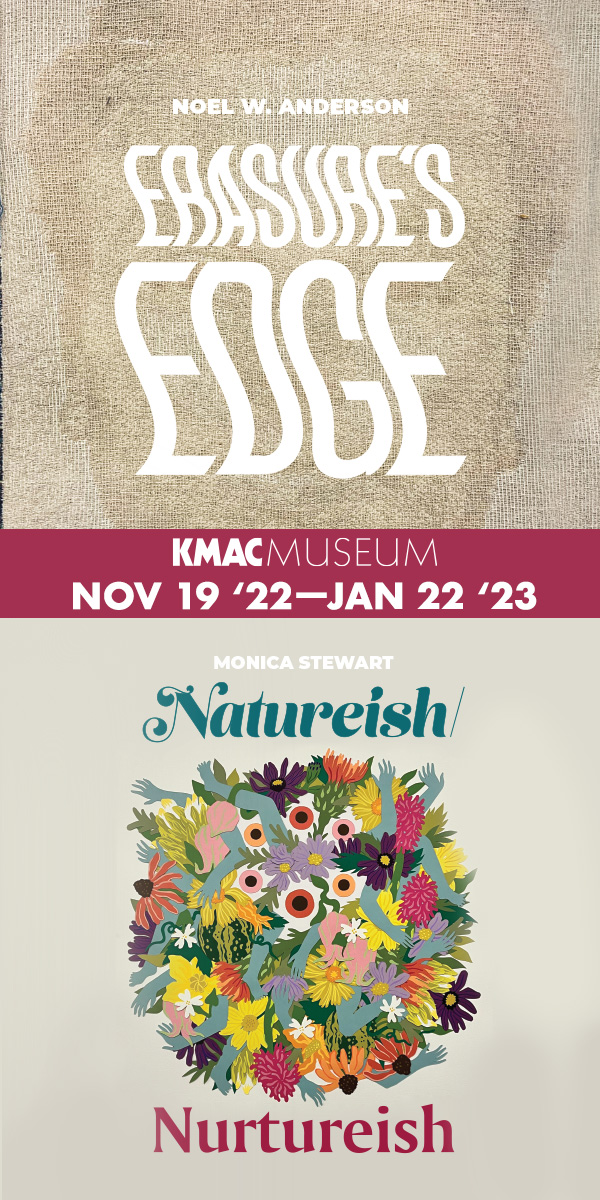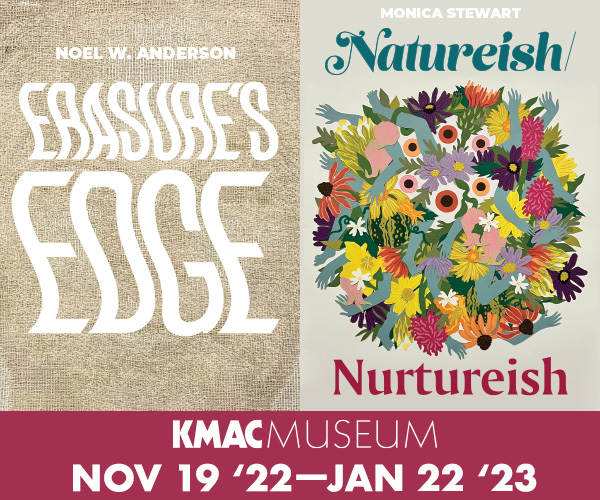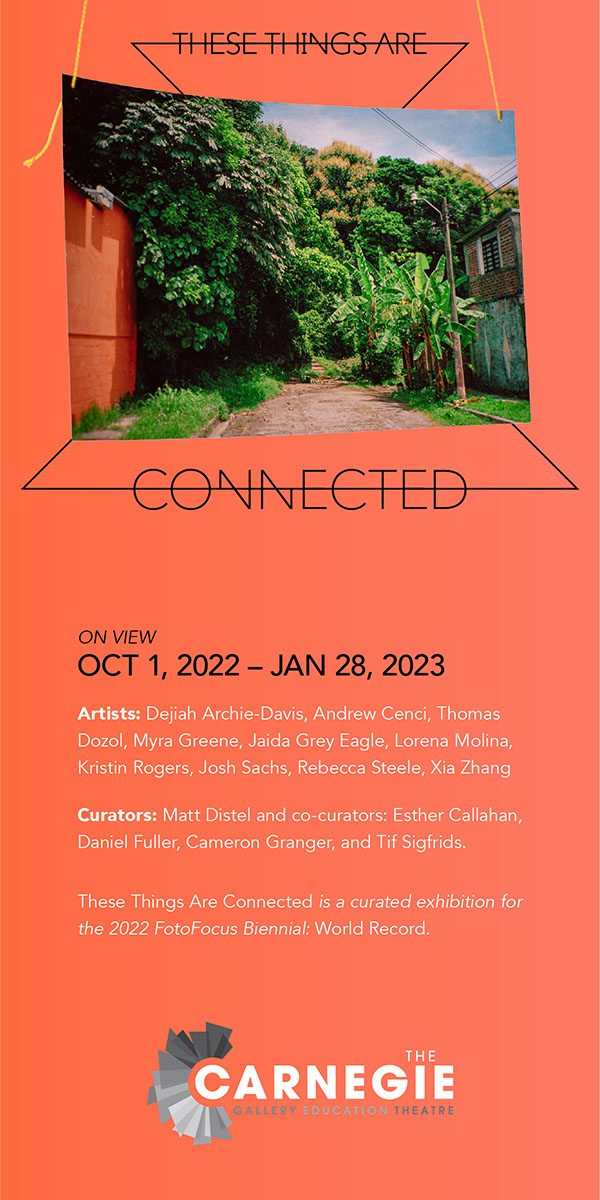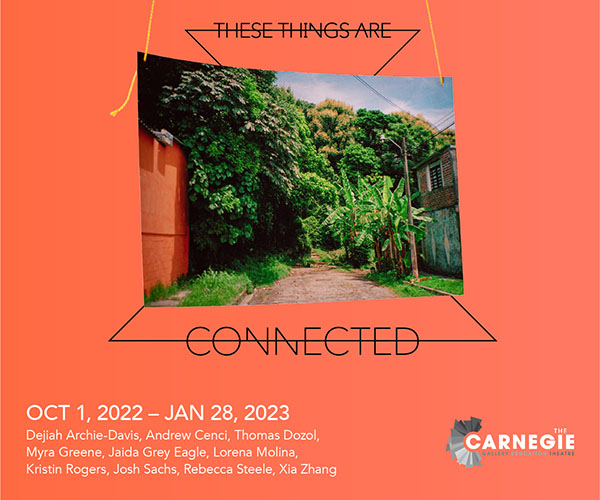In this time of deep division and pandemic-imposed isolation, the practice of “radical hospitality†– stretching to welcome those on the margins – has become both more challenging and more urgent.
Elizabeth Colón Nelson is Actors Theatre of Louisville’s coordinator of radical hospitality.
Tassa-Nieta Wiggington is the founder of a nonprofit in Lexington that promotes civic engagement by bringing together young and old and reuniting them with a past and culture that too often have been devalued.
Both women were named Emerging Leaders of Color by South Arts, one of six regional arts organizations through which the National Endowment for the Arts funnels money and programming.
“The next generation of arts and cultural leadership†is how South Arts describes them. Along with 14 others from southeastern states, they participated in professional development tailored for early- to mid-career arts administrators. Ongoing mentorship and networking across the nine-state region and beyond also are part of the program.
I spoke with Wigginton and Nelson via Zoom in March 2022, and I edited the transcript for clarity and length. A strong thread ran throughout the interview that emphasized their commitment to building community and their conviction that art has the power to build both healthier individuals and stronger communities.
“When you are wired to be concerned about community, you’ll be concerned about community wherever you are because you have to bloom where you’re planted and you have to value your own seed,†says Wigginton, who grew up in Lexington’s West End, studied at Howard University and Harvard’s Graduate School of Education, and worked in media in the Washington, D.C. and Hampton Roads, VA areas.
Returning home, one of her first projects was spotlighting a pivotal chapter of Lexington history that white leaders and media had intentionally obscured: civil rights demonstrations by teens and young adults who were members of the Congress on Racial Equality (CORE).
Wigginton is working to rehab 439 Georgetown Street into a home for her nonprofit organization Whistle Works. The 122-year-old house was home to the late Joanna Kimble Offut Childress, a pianist and music teacher to thousands of African American children in Lexington’s segregated schools. William H. Childress, Jr., her husband, was elected to the Kentucky legislature from Louisville in 1960 and introduced the bill creating the Kentucky Commission on Human Rights.
Nelson grew up in Atlanta. As a child, Nelson’s mother moved from Puerto Rico to South Carolina where she suffered racism’s traumas. Her mother’s experience informs the daughter’s work as an artist and administrator.
And she’s a clown – a real clown. She earned an MFA in ensemble-based physical theater at Dell’Arte International in Humboldt County in California, where she later served on the faculty. Her extensive performance history includes a stint in Las Vegas as a lead clown in the opulent Spiegelworld burlesque shows. “Because of empathy and connectedness to community, we clowns have been the ones to show where to laugh at our weaknesses as humans.â€
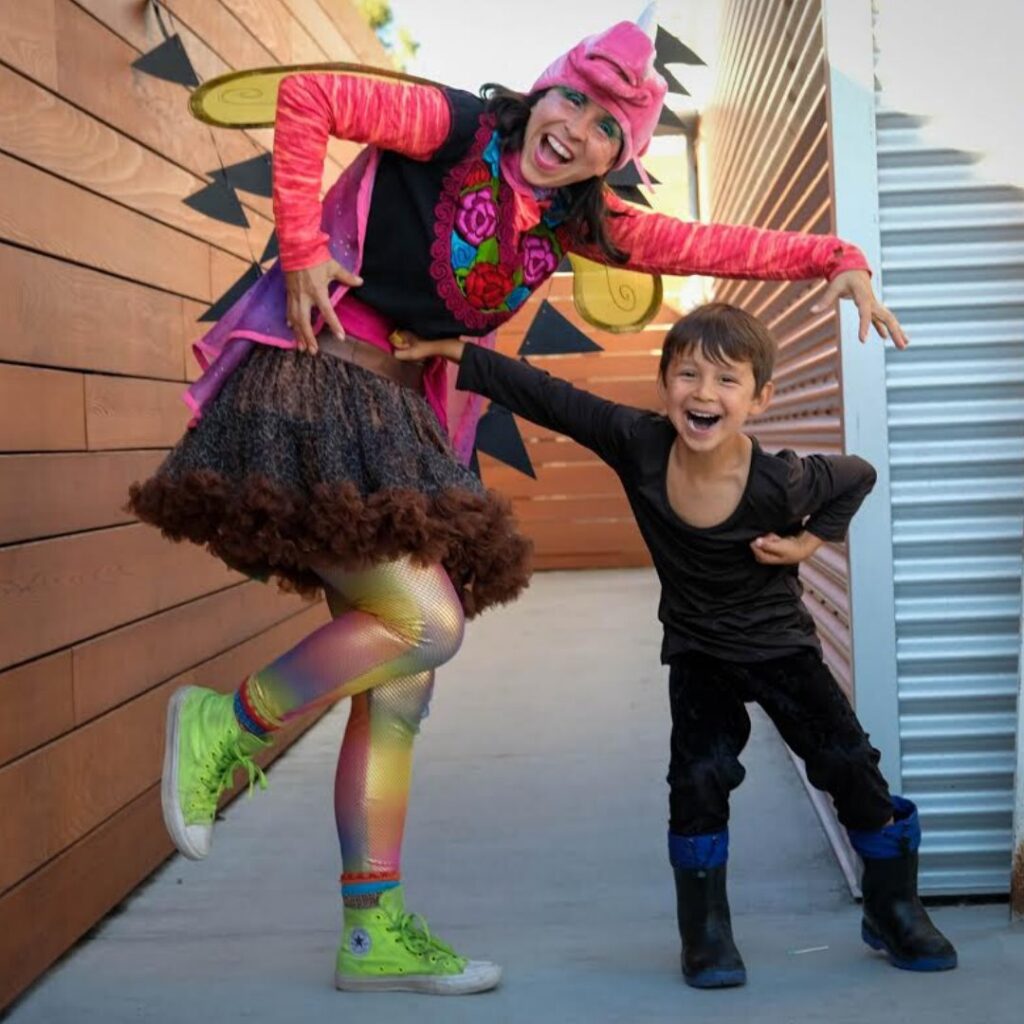
As arts institutions strive to rebound from the pandemic, Nelson urges, “Show up. Come back out when you can.†The challenge, she says, runs deeper than recovering audiences and income lost to COVID 19. “Money will always be an issue. But money can also not be the thing that stops us from continuing to show up, do the work, help other voices be heard, tell the stories…. People are dying and suffering from COVID 19. People are dying and suffering from racism. How do we as storytellers, as artists, come together and help heal in this moment?â€
A South Arts goal, shared by Nelson and Wigginton, is bringing traditionally excluded or undervalued groups and individuals into arts funding streams.
All Americans contribute to the NEA through their taxes and should share in its fruits, says Wigginton, who served as LexArt’s community arts manager. Before that, traveling in Ghana, she observed people carrying folding chairs to events, supplying her with a useful metaphor: Bringing your own chair to the table is what artists and arts groups often must do to secure support.
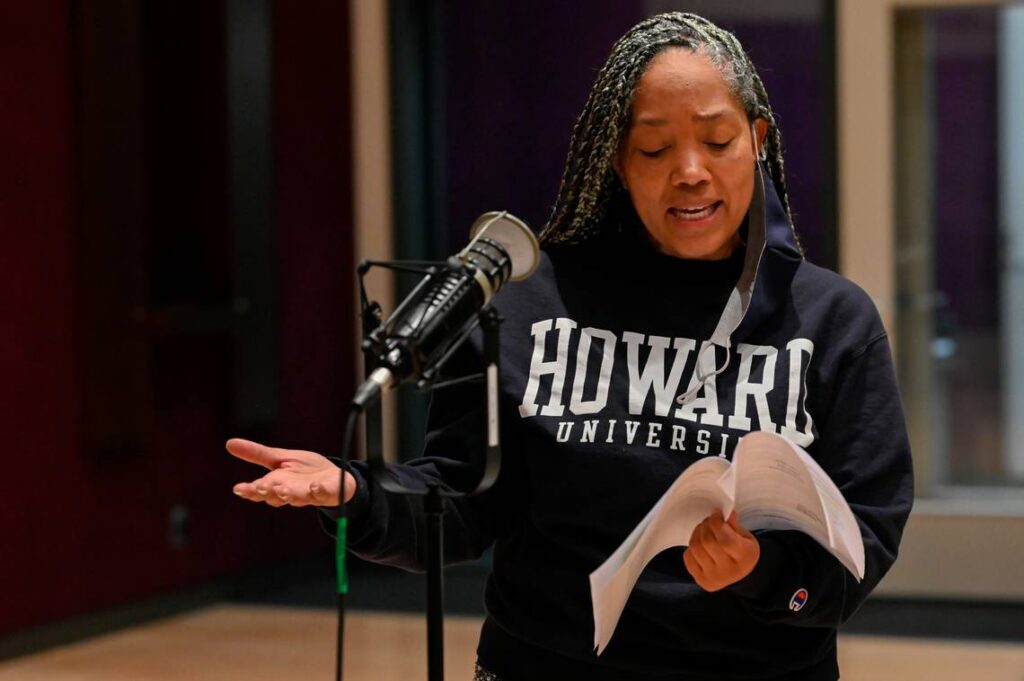
“Don’t walk away from the ask,†Wigginton advises. “And if you don’t get the answer you want, don’t walk away from asking again. And when you ask that time, ask why you didn’t get it before.â€
Jamie Lucke (JL): How do you see yourself in arts administration?
Tassa-Nieta Wigginton (TNW): I am a multi-generational Kentuckian. I’m proud to say that there are so many ways that Kentucky has and continues to lead art that helps America put a mirror to ourselves. Sometimes we refocus, clinging to our legacy and making sure that it has a future. And that future involves incorporating new cultures and new ideas that come into the space that is Kentucky. We look at our history as being a place of discovery, and we have the opportunity to make that in the artistic platform as well. When you look at our traditional arts, pulling the candy is a foodways art; the way someone lovingly decorates the cake, it’s their artistic expression; quilts, crochet. Berea College, oh, my goodness, the wonderful crafts. The things it took to survive in this place is the root of who we become in our art. Because we’re still surviving as Kentucky. We are still moving forward. And art plays an integral role in that.
Elizabeth Colón Nelson (ECN): What you just shared is so powerful about the multi-generationality of many Kentuckians. My husband is born and raised here in Kentucky, and his mother was born in Appalachia and her family born in Appalachia. After reading bell hooks’ “Belonging,†I was like, “We have to move back.†What you’re describing, this holding and knowing the past, standing firmly rooted in the present, and visioning forward towards a future.
TNW: What she just said. I need to see it in print because I need to write it down.
ECN: That is totally borrowing from Afrofuturism, but Appalachian culture, too. The rootedness to nature and seeing, as you were sharing, every aspect of our daily life as art, as an artistic expression. And that, I think, is how we reframe our relationship with the arts. It’s not just a place you go to see an exhibit or a play. It is how Kentuckians rally around the beauty of this place and the diverse wealth of culture. As a person who’s just recently moved here, I’m so inspired by that rallying around everyday art and high art and how it’s all mixed in. That’s my hope for being present in the arts as an administrator, as a facilitator. And participating.
JL: What about radical hospitality?
ECN: Radical hospitality is why I applied to Actors Theatre. Going back to the Latin, the word radical comes from “root†and has come to mean change. The root of change. We are in this moment as a society, as a culture, especially as artists, being asked to adapt and change. How do we make sure that our spaces are, at their root, open and welcoming to all Kentuckians, a hospitable and welcoming place for people to come and be nourished by stories. I’m doing that in a myriad of ways. And that includes using more equitable hiring practices, bringing on new folks, how we bring in our volunteers, how we train them, from what perspective.
How we utilize equity, inclusion, diversity, justice, transformative justice as ways to train our leaders on my team. We’re also just shifting. Small shifts of tiny language changes. As opposed to referring to people as patrons, which has a connotation of money and benefactory, referring to them as our guests. I’m Puerto Rican. So when I have a guest in my home, I’m like, let me lay out everything for you. You cannot mess up my couch, but please let me know, what kind of food do you want? Let me share in this experience of welcoming you into the warmth of my home. We’re doing that in a myriad of ways, as I said, to make sure that historically marginalized groups are part of the rebuilding, that they’re part of this new foundation that we’re building together.
TNW: Radical hospitality is a newer term for me, and I’m loving it. It’s not asking anyone to do more than what you expect to be done for you. Some people will say it’s ignoring people who are already there, when in reality making shifts and changes does not negate people who are already there. Instead, it gives another layer of assurance that they will continue to be respected and that others will be as well.
From an administrator’s standpoint, when we look at patrons, we do have to look at money. We have to look at financial survival, too. If organizations do not make young people feel loved and welcomed, will they come back as seniors? Probably not.
Oftentimes art is looked at as an extra, not an essential. But art in many states is a leading tourism draw. Art has a strong economic base. Art has also been identified as very important in education. One of the roles of an arts administrator is to support others who have been consumers of art, whether it was free or by ticket.
ECN: It’s part of health and wellness. It’s not just entertainment.
Actors really shifted to doing a lot of online work. And said, ‘who are the people here in Kentucky, who are those voices? How do we uplift, share space with folks?’ Their voices are not often heard from our stages. And now we’re going back from that virtual time and saying, let’s relook at those moments that were lab productions and invest more into the folks who took a risk with us during that time.
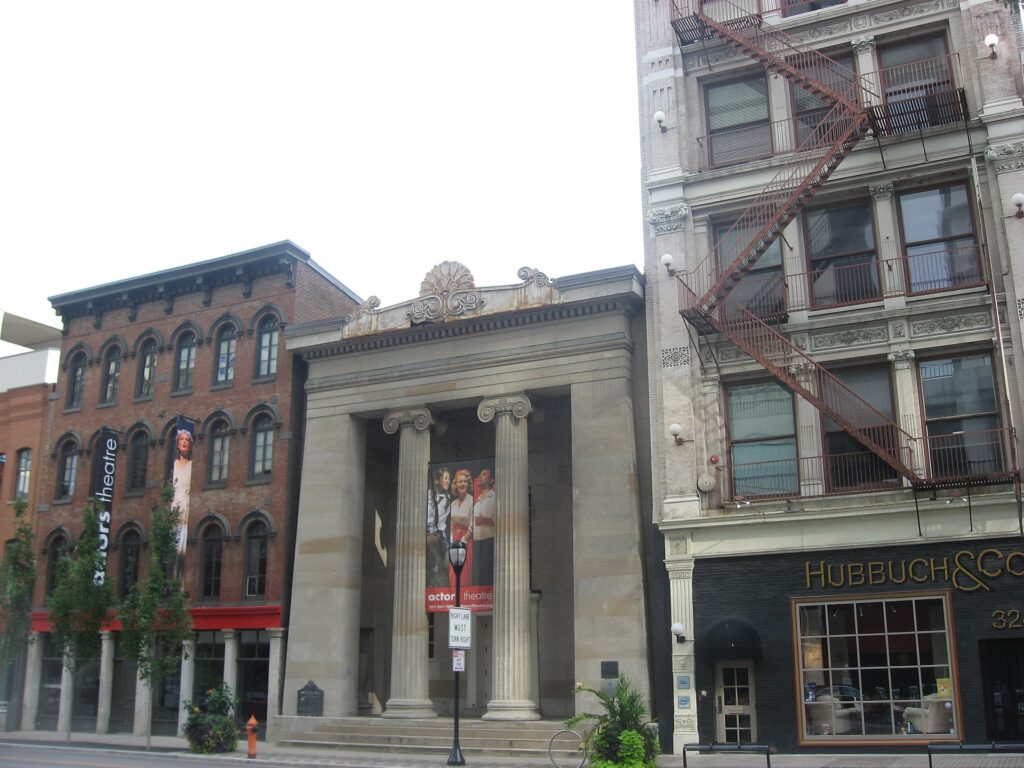
JL: Talk about your personal journeys, Elizabeth, before becoming an arts administrator. One of your gigs was clown. There has to be a story there.
ECN: There’s always a story when you have a clown on a Zoom call. So I still am a clown, just so you know, I can’t get out of it. The thing that Nieta talked about of connectedness: I thought about how clowns are the ones who are most willing to show up as vulnerable and fail. You laugh at our foibles. You laugh at the fact that we’re willing to slip and fall and we have big red noses and that we often are the butt of the joke. And that is possible because of empathy and connectedness. And my favorite clowns, my mentors, all the women who I hope to end up being like, when I’m an old lady, when I grow up, their passion was in the community. They were first an activist and second a clown.
I stepped into arts administration because I was finding that the art that I wanted to see, the art that I wanted to be a part of, I didn’t see people making it. So, I said, well, let’s write a grant. Let’s make it. And I ended up producing several arts events, including a Women of Color Arts Festival in Las Vegas and stepping into a role at Dell’Arte International to help shape change at that organization. So our new clowns that were coming up would experience a more equitable learning environment.
JL: Nieta, you create opportunities for children through Whistle Work, and you’ve also been listening to elders, recording oral histories.
TNW: They’re all connected. When I came back to Kentucky some things were coming together in my mind, in my heart. I had the opportunity to work with the University of Kentucky and the Kentucky Commission on Human Rights to gather our histories, realizing that many of our elders have not been celebrated, they haven’t been acknowledged. And they did this work when they were young people. We launched Aiming for New Heights and Celebrating the CORE of Kentucky’s Civil Rights Movement. It was the opportunity to celebrate the Congress on Racial Equality, students who were on the front line for desegregation. Lexington did not cover the civil rights experience in Kentucky. Those young people, when their names were in the paper, it was that they were being arrested but it doesn’t say why they were being arrested. We had people come in from all over, and I realized that there was a great need. Whistle Work was giving gifts to the community that the community really gave to themselves. It’s just packaging them, just packaging the gifts we give to ourselves.
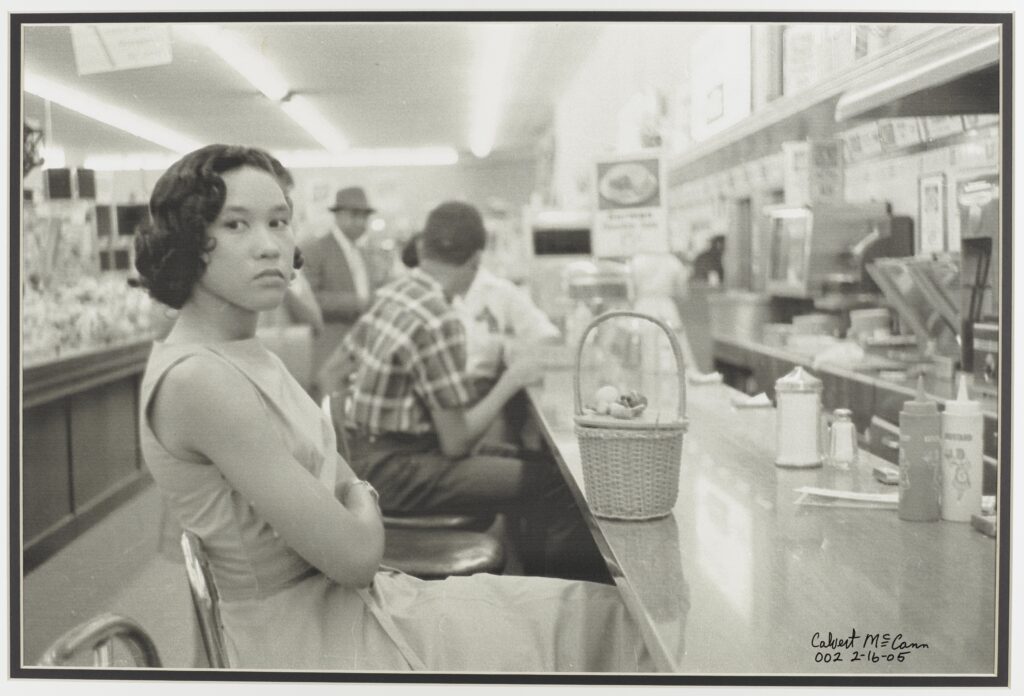
We did “Once Upon A Time on Georgetown Street†summer youth camp. It was a response to a summer of shootings and the way that the Georgetown Street corridor was portrayed strictly around the shootings. The shooting could be stoplights away, but it was attached to Georgetown Street, the historic West End. The image that was being portrayed of this community then becomes a violent one. Children who live there, the narration that you give them of their community becomes part of the narration of who they are themselves. And so, having done an oral history project, having been reared in the historic West End, I knew some different stories, some different narratives, and I found it very important for us to share those narratives with our young people and to realize we come from a community with problems, but we have been a community of the state’s problem solvers. A lot of times when people work with marginalized communities, because their income is less than, they are presented in terms of need as opposed to equity. So you may not have had financial equity if you lived in that neighborhood, but you had social equity, you have community equity. Someone else may have a different view of you, but I want to make sure you have a view of yourself to decide on.
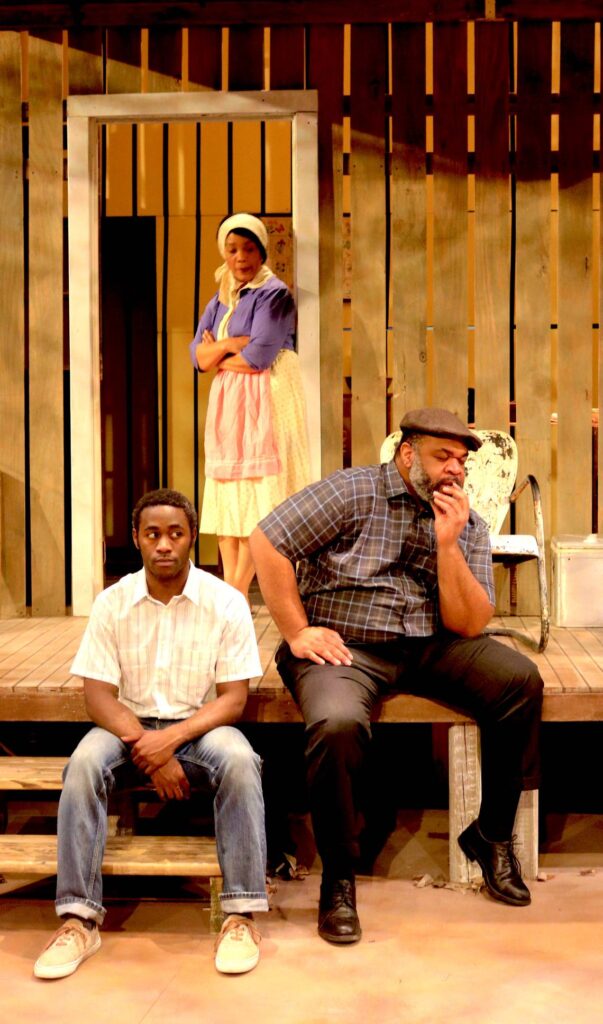
JL: How did you choose the name Whistle Work?
TNW: A whistle is used to celebrate us. It’s used to redirect us. It’s used to stop us. It is used to get our attention. It is used historically to start and stop our workday. When it comes to young people, we have all those things to do. There is work to be done in celebrating them, in redirecting them, and giving them instructions on how to start and stop. So I thought there were some beautiful whistle work opportunities.
She relates that her father, the late John Wigginton, was known in their Oakwood Estates neighborhood for his “piercing†whistle. Years later, she learned from childhood friends that they too scurried home at the sound of “Mr. Johnny’s whistle.â€
[The whistle] may be that he’s telling me he’s going someplace. It may be he’s offering me the opportunity to go with him. But whatever it was, he was saying “I need to see you. You need to make your way back home.†I knew I could come to him; it was going to be safe. Our young people need to know they can come to us, and it’s going to be safe, even if you’re in trouble.
ECN: I’m always envious of people who have lived in a place for a really long time because our family moved to the States when my mother was like eight or nine. In the height of the civil rights movement, she moved to South Carolina. I’m part of the diaspora and so always feeling out of place, longing for my island, longing for home and connection, and this kind of rootedness that you talk about. All of that I longed for. My mother is much more Afro-presenting than I am. So the Jim Crow laws were really hard for her.
Half of our family couldn’t eat in restaurants, couldn’t go to public restrooms, couldn’t go to pools. The other half of our family is more white-presenting and was accepted in white society, and it really splintered our family. I always have held those stories with me. Why would that happen? How is that different on our island? What made it possible in Puerto Rico for my whole family to live completely together, even though there’s massive amounts of racism in Puerto Rico. The perspective on our mixed culture was different.
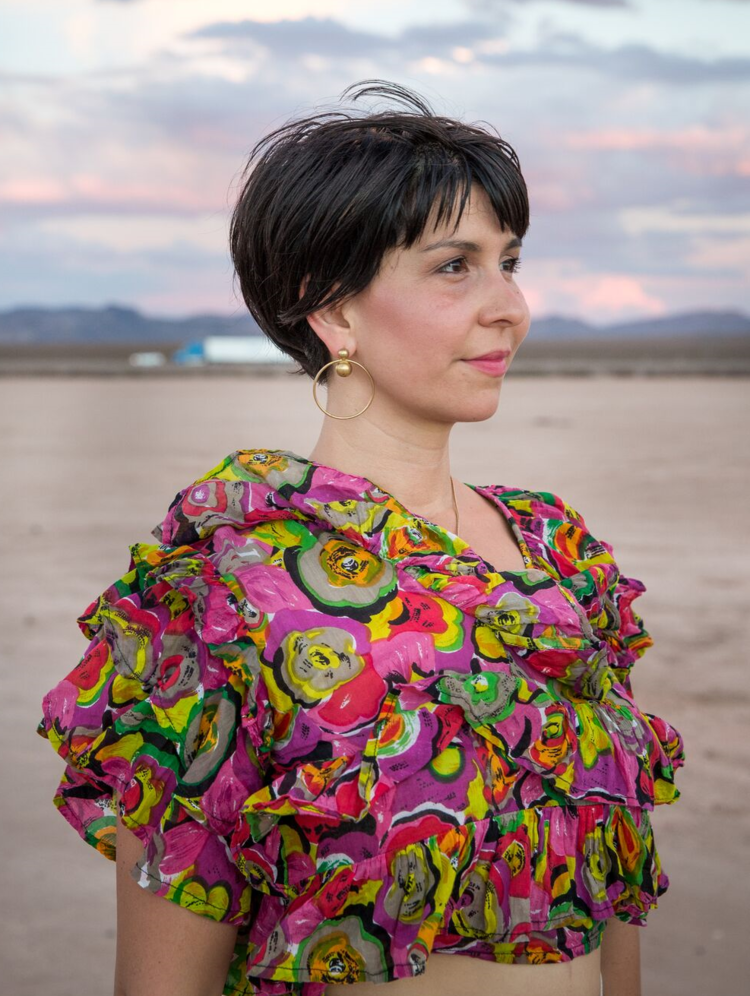
My mother, when she moved to the States, didn’t speak English. They put her in special ed and named her names that were cruel but also not helpful to the development of a young child. And so I was like, what was another option, what was another possibility for my mother? That led me to really explore clown, because we’ve got to laugh at this because this is messed up, y’all, this is messed up.
I also was the first one to go back to our island and my family. For close to 20 years, nobody had been back. And I went and researched our family history and our Thaino culture, our rootedness, the interconnection between the Conquistadors who enslaved the Thaino people and enslaved Africans, and how all of those show up in my lineage and my heritage. I am a mix of the Conquistador and the enslaved and the Indigenous. And I have a responsibility to hold those truths in all the work I do, whether I’m on stage making people laugh or writing policy to change laws for artists and young children. And so I feel like I carry their stories with me. I’ve recently started hosting conversations about globalization, race, culture, sexism, all of it. And we talk about it through a Puerto Rican meal, because that food is what connects us. It’s what has sustained us. In every aspect of my life, even raising my son, my family is with me. Their histories are with me. My son calls himself a Kentucky Rican. He’s willing and able to embrace the multitude of aspects and the multitude of stories that come at him that he holds. And he knows, I am all of these things. I contain multitudes.
JL: Despite your deep roots in Lexington and your family’s contributions to this community, I bet there have been times when you’ve been in your hometown and made to feel like the other.
TNW: Absolutely. There are so many times when that has been the case. I’m going to assume that you’re talking about my father’s side of the family. My last name. (Her father was a Lexington-Fayette Urban County Council member and Lexington’s Citizens’ Advocate.) And we’re all very close. But I would like to also add my mother’s side of the family who actually welcomed my dad’s family to the historic West End.
They were educators, very active in the African American Education Association. At that time, teachers traveled. My grandfather and grandmother traveled and lived in different places. The last place where I was loved by them was in Stanford. Stanford is where I had cows and where I grew gardens. I left here right after high school and I was away as long as I had lived here. I have to give credit to the women in my family, they always taught that you also water other people’s seed. My father was quick to say you learn to stand up for other people and then you trust that somebody’s going to stand up for you. This is a marathon. And what we learned from the program Elizabeth and I were in was that it’s also a relay. You got to pass the torch.
JL: How did the police killing of Breonna Taylor affect your work and affect you personally?
TNW: It was very painful physically. There was a part of me that needed to take a nap. It’s like the blood draining out of you. Knowing how long it took for her story to get attention. How long it took us to rally for Breonna, not only for Breonna, but for her partner Kenneth Walker. So that was a hurt or an awareness. And then there was the beauty, seeing the connectedness and that people of all generations, of all backgrounds could acknowledge the pain, even if they didn’t understand the depth of it. I do not want to say there was beauty in her dying but in the human spirit that was raised by her body being laid to rest.
ECN: All the way over on the other side of the continent.
TNW: Absolutely. She moved the world.
ECN: It’s so good to hear you reflect on her legacy. That time, that pain. I was in Northern California, living on a farm at the time, milking goats and feeding cows and collecting eggs and all that kind of stuff. And this weight that you talk about of just needing to rest, that was palpable. There’s a sign on my route to drop my son at school. It says Breonna was essential. Remember, a large portion of Actors Theatre was built by enslaved Africans. We honor that in our land acknowledgments and I’m working to uncover their names, to name them. I walk the Breeway (Jefferson Park Square, site of racial justice protests and a memorial to Taylor now housed at Roots 101 African American Museum in downtown Louisville) pretty regularly to remind myself of this very thing you’re talking about, not just her murder but the people who came to stand up and say “No more.” The rage, the hope, the joy, the belief that it has to be better, that you should have the right to be able to sleep in your bed and wake up peacefully. I think of her regularly. I would not have been reminded of the importance of Louisville without her passing. This is a city that is passionate about change and knows that it’s going to take a long time. And it might look a little ugly for a minute. It might get messy, but that’s okay because it’s time to uncover the mess and just lay it bare so we can really heal.
TNW: When you talk about that time, so many of our elders were not able to participate (because of COVID 19). It was also the joy of seeing the next generation pick up the torch. I just think Kentucky always plays a part when it comes to issues of social justice. The nation may not know that, but Kentucky should. The first place that Dr. King did a major public speech after the March on Washington was the March on Frankfort here in Kentucky for the public accommodations bill. It didn’t pass that year, but it made the way for it to be passed during the next legislature. Kentucky is the place that the torch passes between the North and the South. And I don’t think that we can ignore that and who we are; it’s inherent in our character.
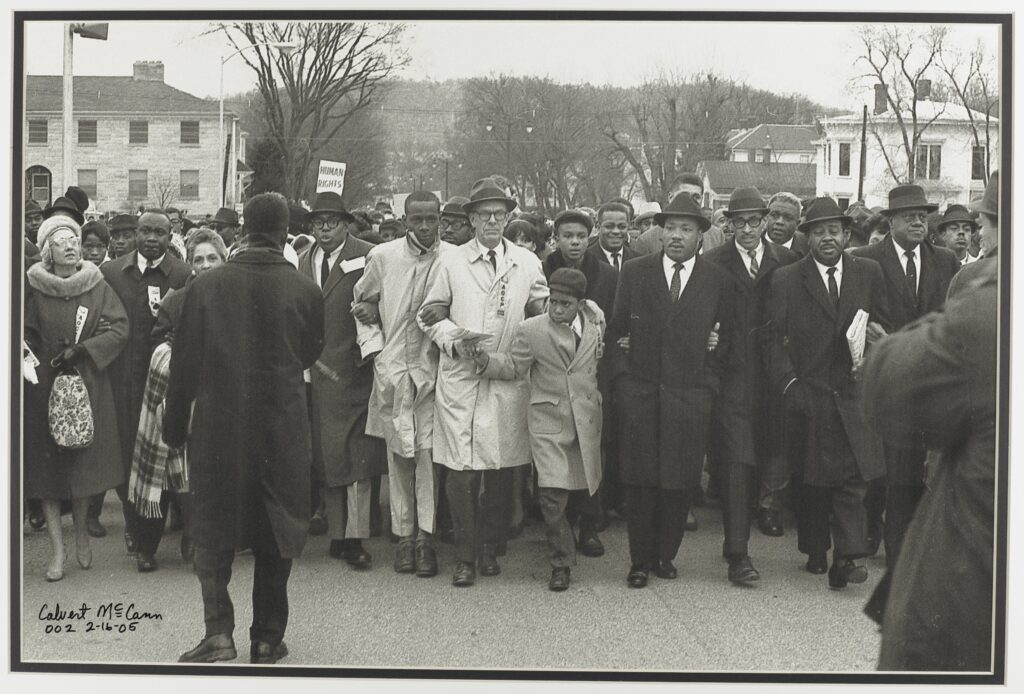
We have played a duality from the Civil War. We had people that were strong on both sides, and we are still working out that way for our families to stay together.
ECN: This thing that Nieta is talking about, of passing that torch, of sharing information, of opening the door for the next folks, that was part of what we were doing at Emerging Leaders of Color. I have people who have already blazed those trails and done that hard work, so I can reach out to them when I come up against something similar. And that kind of mentorship is so vital for youth and even for folks at our stage in development, that we share knowledge, that it’s not a scarcity model. We grow together.
Listen to the conversation.

